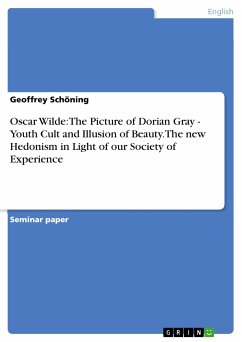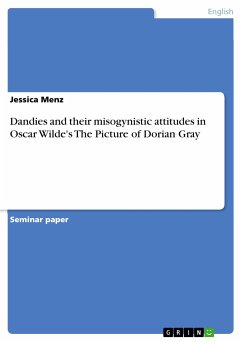Seminar paper from the year 1999 in the subject English Language and Literature Studies - Literature, grade: 2 (B), Technical University of Braunschweig (English Seminar), course: PS Introduction to Late Victorian Literature, language: English, abstract: In this paper I will first give an account of the aesthetic movement in England, from origin to decline, which I will then oppose to the character of Dorian Gray in Oscar Wilde′s The Picture of Dorian Gray. The comparison of the different stages in the development of both aestheticism and its incarnated representative Dorian Gray is intended to outline the fact that, even before the decline of aestheticism sets in in the 1890s, Oscar Wilde has anticipated the danger that lies in leading a life that is exclusively based on aesthetic values and pursuing its doctrines too persistently. Through the ruin of Dorian Gray, Wilde reveals the tragedy of the aesthetic movement and thus shows that it is eventually inevitably condemned to fail. Dorian is the epitome of an aesthete who in the end becomes the martyr of a movement which has preached, taught and understood its philosophy too narrow-mindedly. Of course this is a deficiency of narrow-mindedness in general and thus The Picture of Dorian Gray does not only represent the undoing of the epoch it was written in but also of any other theory or philosophy that takes itself too seriously. I will support this statement with an assertion of Lord Henry Wootton′s, who is obviously a polemic on general principles but therefore mostly not less right. "Humanity takes itself too seriously. It′s the world′s original sin. If the caveman had known how to laugh, History would have been different." (p.50 )1









